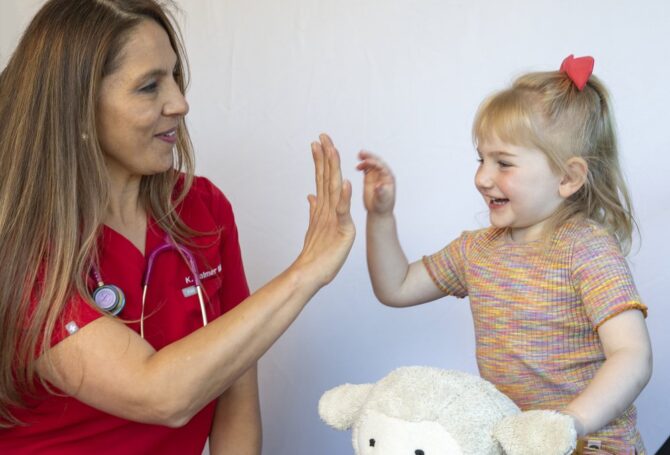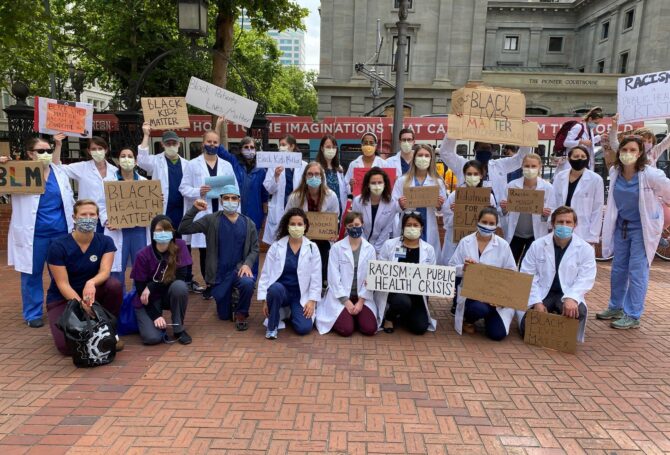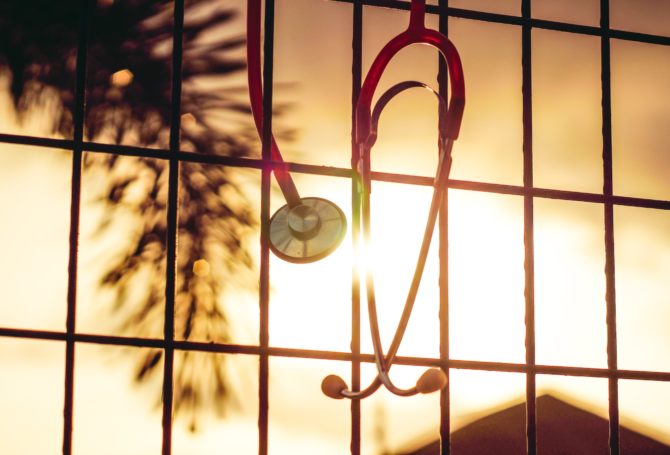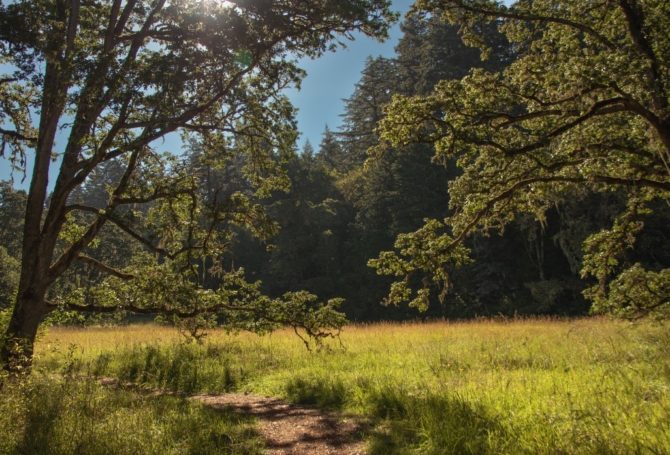
October 26, 2022
During the pandemic, OPS Member Lauren Herbert, MD, FAAP, began thinking more and more about nature as a tool to address mental health. As a result, she led a grant-funded project to better connect her Latinx patients and families to a local arboretum. Read on for Dr. Herbert’s account of the project inspiration, how she developed community partnerships, and what the program looked like as it rolled out on Eugene trails.
The need
During the pandemic, the BMIs of many children in my clinic increased, consistent with national trends. I was piloting a program for PeaceHealth that emphasizes healthy diet and exercise rather than BMI. While this program has been much more effective than any other approach that I have used during my three decades of practice, many of the families in my predominately Latinx clinic faced food insecurity and said they were reluctant to leave home because of the fear of contracting COVID-19 or facing racist comments or actions. The difficulty of these times has taken a toll on the mental health of most people. My healthy lifestyles counseling needed to address mental health along with healthy diet and exercise.
The Gift of Nature
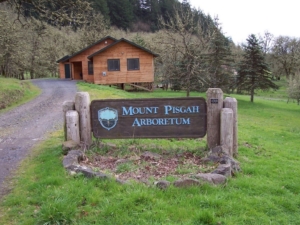
Like so many others, my husband and I faced the stress and isolation of the pandemic by acquiring a rescue puppy. Once the puppy was old enough, we began hiking the many trails of Mt. Pisgah Arboretum. The time outside in this beautiful place has helped me weather the stress of this difficult time.
I wanted to give to my patients the gift of time outside in a place with low risk of COVID-19 transmission and that was intentionally welcoming to all. I bought Mt. Pisgah parking passes and began giving gifting my patients these passes, along with the arboretum trail maps in Spanish. I gave these to families, saying something like, “This has been such a stressful time for everybody. Go out to this beautiful place with your family or friends and enjoy time together.” It felt so good to give a gift that supported my patients’ mental health as well as their physical health, especially for families who were already experiencing so many difficulties. My colleague, Dr. Leslie Pelinka, also began giving passes to families in her clinic.
Project Inspiration and Beginnings
During the winter of 2021, I participated in the LCMS Diversity Equity Inclusion Zoom discussions and the another virtual series organized by Nurturely on Racism in Pediatric and Perinatal Medicine. In one of the Nurturely sessions, a Black-Latinx pediatrician and trail runner talked about how she developed a program in her clinic that enabled children and their families to gather in community at their local natural parks. In the discussion that followed, other participants and I began talking about developing a similar program in the Eugene-Springfield area. One of the other pediatricians, two of the Latinx mothers in my clinic and I joined the Mt. Pisgah Arboretum (MPA) DEI committee. I also joined the MPA board. The children of the Latinx mothers had previously participated in the Lane County Migrant Education Program (MEP), so together with MPA and MEP staff, we developed ideas for a grant proposal to the American Academy of Pediatrics CATCH (Community Access to Child Health) program, with the primary objective of improving mental health, and secondary objectives of increasing physical activity.
Bringing the Program to Life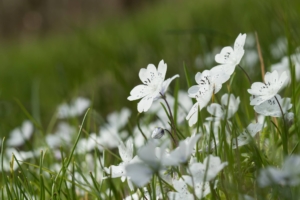
We were awarded the $10,000 one-year grant and hit the ground running. The MEP programs start in June, which is when the grant funds were awarded. During June and July, eleven MEP high school students were trained as nature walk leaders. They were paid for participating, and then paid to lead nature walks for the younger MEP students. 99 younger children participated. During the rest of 2022 and winter and spring 2023, the MEP high school students will be paid to lead bilingual nature walks for families. At the end of the summer 2022, there was a celebration that included the teens, their families, and MEP and MPA staff. Not only did the teens love the program, but also the parents, and the MEP and MPA staff. The teens led us on a nature walk, ending with visiting bats in a barn at MPA.
The ten Spanish-speaking providers have been giving patients MPA parking passes and maps of the arboretum. We also developed a postcard-sized handout that lists the health benefits of green spaces to give to families.
Program Assessment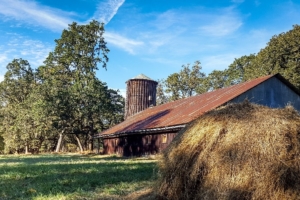
This is a project to help our community, not a study. The children were already enrolled in the Migrant Education Program, so do not represent all Latinx children nor do they represent other children. Still, there might be ideas that we could use to help other people.
As we had framed the grant proposal around mental health, I wanted to know what components of the program were helpful and gave the teens a questionnaire. See the teen feedback here. From the poll, being with other teens, being outside, learning about the natural world, helping others, and being paid were all important. It appears that all these aspects could be incorporated into future projects.
In this preliminary project, the teens, the younger children and the adults all enjoyed participating. It is wonderful to feel part of a community solution to some of the difficulty that children are experiencing now, and it was so gratifying to see the joy on the faces of teens, parents, Pisgah staff, and MEP staff that evening of the summer-end celebration. I am looking forward to seeing this project move forward.

